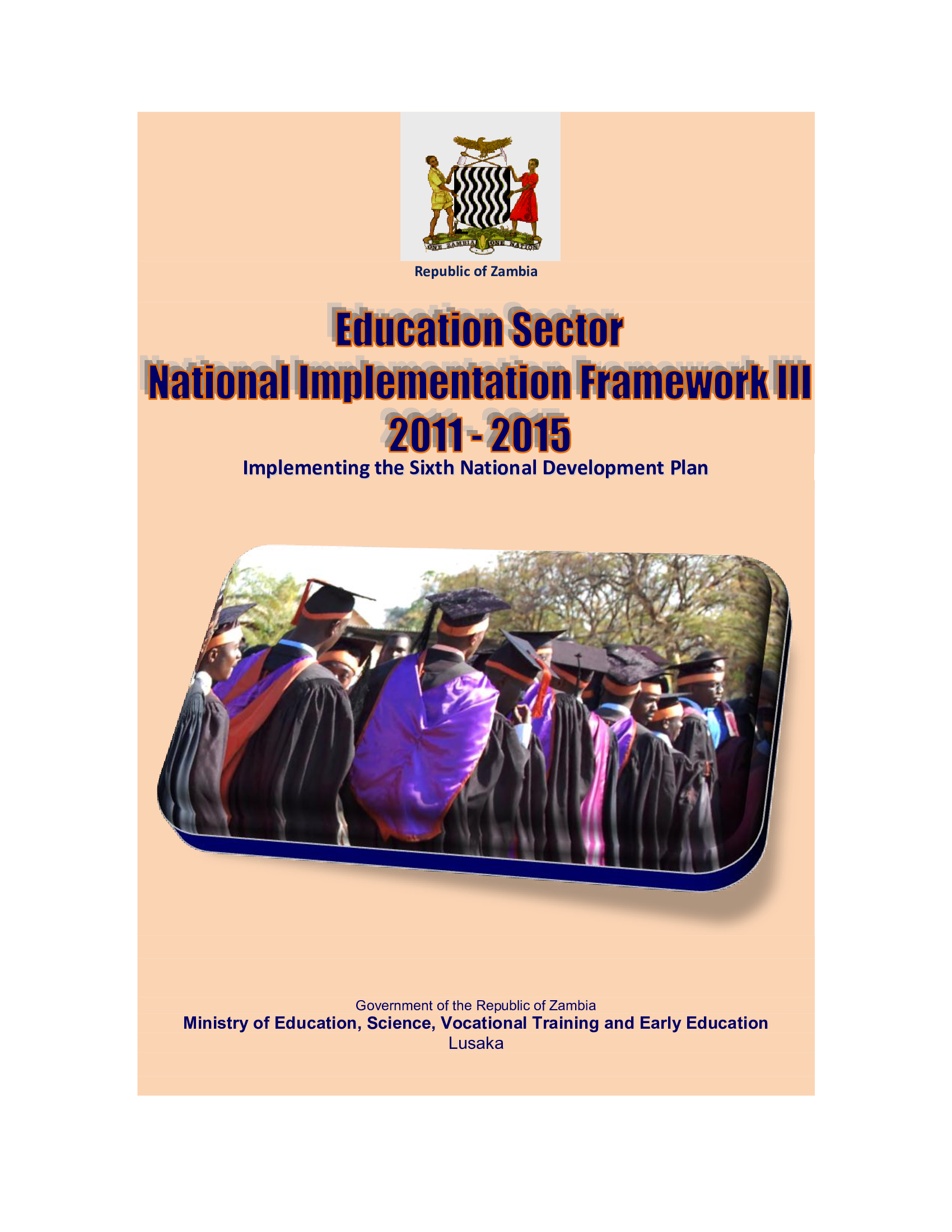The government of Zambia is committed to allocating more resources to the education sector in order to expand access to primary, secondary, and tertiary education. Education in Zambia is seen as a major factor in fighting poverty and hunger.
The goal of the education sector is to increase equitable access to quality education and skills training to enhance human capacity for sustainable national development.
The National Implementation Framework III’s (NIF III) primary goal is to enhance human capacity by improving quality education and skills training, with particular attention to raising learning achievement levels and mitigating inequities and inefficiencies.
Despite increases in student enrollment and completion rates at the basic school level, quality remains low. This reflects challenges in teaching quality and supply, teaching and learning materials, and school governance.
The ministry of education has set nine objectives in the NIF III period:
- Increase access, efficiency, and equity to quality early childhood education (ECE) and primary education:
- Secure better ECE services through new guidelines and standards to ensure that all children aged 3-6 years have equitable access to ECE.
- Introduce free and compulsory education for all learners Grades 1-7.
- Develop comprehensive and integrated curriculum for primary grades.
- Increase access, efficiency, and equity to quality secondary school education:
- Reintroduce free and compulsory education for all learners for Grades 8-12.
- Strengthen gender equity and parity within the secondary school education system.
- Reorient curriculum to emphasize life skills, labor market, and self-employment needs.
- Increase the number of qualified and competent teachers in schools:
- Provide quality and development-oriented teacher education programs ensuring that graduates are properly equipped with subject-knowledge and pedagogical skills.
- Expand teacher education capacity through the public sector and provide incentives for private sector participation.
- Reduce teacher absenteeism to increase student-teacher contact time.
- Increase access to science, technology, and innovation:
- Prioritize teaching science and technological subjects at all education levels.
- Promote research, innovation, and collaboration between industry and research institutions.
- Increase access, participation, and equity in the provision of quality university education:
- Increase equitable access to university education and improve the relevance of programs offered at institutions.
- Increase university involvement in research and development.
- Increase efficiency and equitable access to technical education, vocational, and entrepreneurship trainings (TEVET):
- Improve and expand facilities for teaching science and technical subjects including creating technical schools, colleges, and universities.
- Promote collaboration between industry and TEVET institutions.
- Increase adult literacy levels:
- Expand educational facilities and vocational training
- Raise awareness of adult literacy programs to increase access to youth and adult literacy education services.
- Expand and improve infrastructure through the construction of new facilities and rehabilitation of existing ones:
- Promote community participation at primary, secondary, and tertiary level institutions in the development of infrastructure.
- Provide safe learning environment for all learners through reintroducing boarding facilities.
- Review the curriculum at all levels to make it relevant and responsive to national aspirations and education needs.
In order to implement NIF III, the government has set a number of strategic priorities. These include nurturing strong partnerships with educational service providers, systemic restructuring and management capacity enhancement, and providing formal and alternative modes of education delivery.


